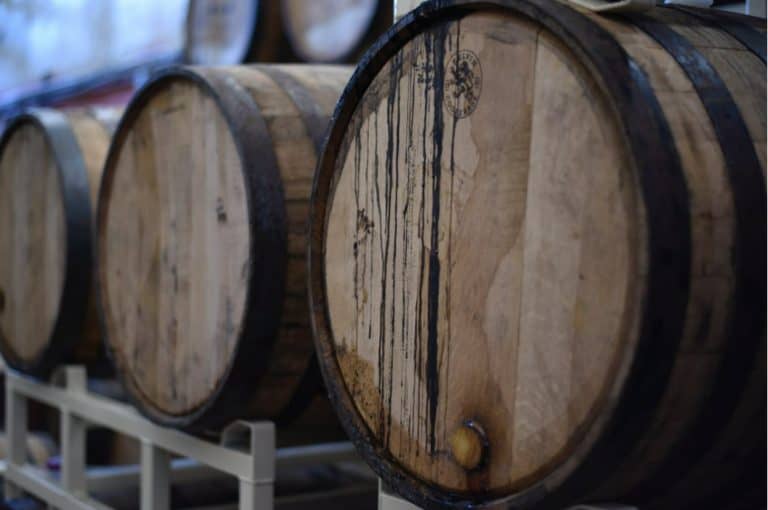
Order your next bottle of Scout & Cellar wine TODAY!
We’ve all been in that situation before. We’ve had a long evening and have eaten a lot of wine, and a severe headache is forming. The majority of us get red wine headaches from consuming too much wine and not enough water. The simple remedy is to be aware of how much alcohol you consume and to stay hydrated at all times. But what causes headaches from wine?
Headaches from wine can occur in a small percentage of our population, even if we don’t drink much. So, what causes headaches like these, and how can we avoid them? So as not to avoid drinking wine?
There are three main causes and treatments, but before we go into detail about them, we’d like to dispel one myth, sulfites do not cause headaches. They do not induce headaches, although they can cause asthma symptoms.
SULFITES
Here’s some good news, your wine headache isn’t caused by sulfites. What makes this such excellent news? Sulfites are found in almost all wines. It is extremely difficult to find a truly sulfite free wine.
Sulfur is added to wine to eliminate undesired bacteria and yeasts, which prevents the wine from browning and deteriorating. You can’t completely eliminate sulfites because they’re a natural consequence of fermentation.
Sulfites acquire a poor name because wines with more than 10 parts per million (ppm) of sulfites will say on the label, This wine contains sulfites. People are prone to believe they are awful when they hear a warning like that. The truth is that sulfite allergies affect only about 1% of the population.
If you’re concerned about sulfites, you should know that wine has a considerably lower sulfite content than dried fruit. If you’ve ever had a red wine headache, you should know that white wines generally have more added sulfites than red wines.
Read about how wine can affect your stomach HERE!
THE MOST LIKELY CAUSE OF A WINE HEADACHE
Histamines
Another molecule present in popular foods like aged cheese, cured pork, and red wine is histamine. When you come into contact with histamine and your genetics prohibit you from metabolizing it, you may feel symptoms including a runny nose, dry eyes, and headaches.
What to Eat with Cabernet Sauvignon
The following are suggestions to help with histamine wine headaches:
If you know you’re allergic to histamines, take a Claritin before you drink a glass of red wine. You might also stick to low-histamine red wines. Some makers developed wines with a tenth of the histamines found in a typical bottle of red wine.
Sugar
Sugar can give you a headache, especially when mixed with alcohol. When you drink sugary alcoholic beverages and aren’t properly hydrated, your body will use its own water supply. You’ll have a headache as the water leaves your head.
The following are solutions for wine headaches related to sugar:
First and foremost, remain hydrated, both in general and while drinking wine. You can drink wine and water in equal measure, or simply have a big glass of water before starting to drink and again at the end of the night.
Dessert wines, white wines branded sweet or semi-dry, and mass-produced red blends are likewise to be avoided. Instead, opt for drier red and white wines.
Tannins
Tannins are a type of polyphenol, a plant-based molecule. They are derived from grape seeds, grape skins, and stems in wine. Because red wine receives its color from the skins of the grapes, it’s only natural that it has more tannins than white wine.
What is the flavor of tannins? Tannins impart astringency to wine. You’ll notice tannins if you notice a drying feeling on the sides of your tongue after taking a drink.
Tannins are high in antioxidants and have been linked to a variety of health advantages. Tannins, however, can cause headaches in some persons.
Solutions for tannin related headaches:
Make a strong cup of black tea to see if tannins are the source of your headaches. Allow the tea bag to steep for an additional 10 minutes. Tannins in black tea are abundant, and when you over-steep it, the tannins are released into the hot water. If you develop a headache after drinking this tea, you probably have a tannin sensitivity.
If you’re in this situation, stay away from red wines with a lot of tannins, such as Cabernet Sauvignon or Tannat. You could simply forgo red wine and stick to white, but we’re not sure how we feel about it.
Try lighter, lower-tannin reds like Pinot Noir, Gamay, and Dolcetto if you enjoy red wine. You can also try full-bodied reds from South America, such as Cabernet Sauvignon and Malbec, which have less tannins than their French counterparts.
ADDITIONAL SUGGESTIONS
Each Glass Of Wine Should Be Accompanied With A Glass Of Water
The most prevalent error made by wine consumers is dehydration. Because you’re already drinking, it’s easy to forget. When it comes to wine, hydration is crucial, and water is just what you need. Make it a habit to drink a glass of water before each glass of wine you consume. Your waiter may be annoyed, but your forehead will thank you.
Take 2 Before You Drink
Two aspirin, ibuprofen, or acetaminophen is what I mean. Of course, you do it at your own risk, and it’s not a good idea if you’re a heavy drinker. Over-the-counter blood thinners, on the other hand, can help get your blood vessels moving. The pills can also be used to make yourself drink a glass of water.
Because I’m not your doctor and I’m recommending over-the-counter medications, please consult your doctor first.
When Drinking Wine, Avoid Sugary Foods
Only a cake-and-wine headache is worse than a red wine headache. Although confetti cake sounds delicious, especially after a glass of wine, the mix of sugar and alcohol will dramatically increase the risk of headache. If you’re sensitive to wine, save confetti cake for late-night coffee-and-cake binges and use wine to fend off dessert cravings.
Summary: What Causes Headaches From Wine?
We’ve all been in that situation before. We’ve had a long evening and have eaten a lot of wine, and a severe headache is forming. The majority of us get wine headaches from consuming too much wine and not enough water. The simple remedy is to be aware of how much alcohol you consume and to stay hydrated at all times.
However, headaches from wine can occur in a small percentage of our population, even if we don’t drink much. So, what causes headaches like these, and how can we avoid them?
There are three main causes and treatments, but before we go into detail about them, we’d like to dispel one myth: sulfites do not cause headaches. Sulfites do not induce headaches, although they can cause asthma symptoms.
If you have any questions about What Causes Headaches From Wine? contact me today.







